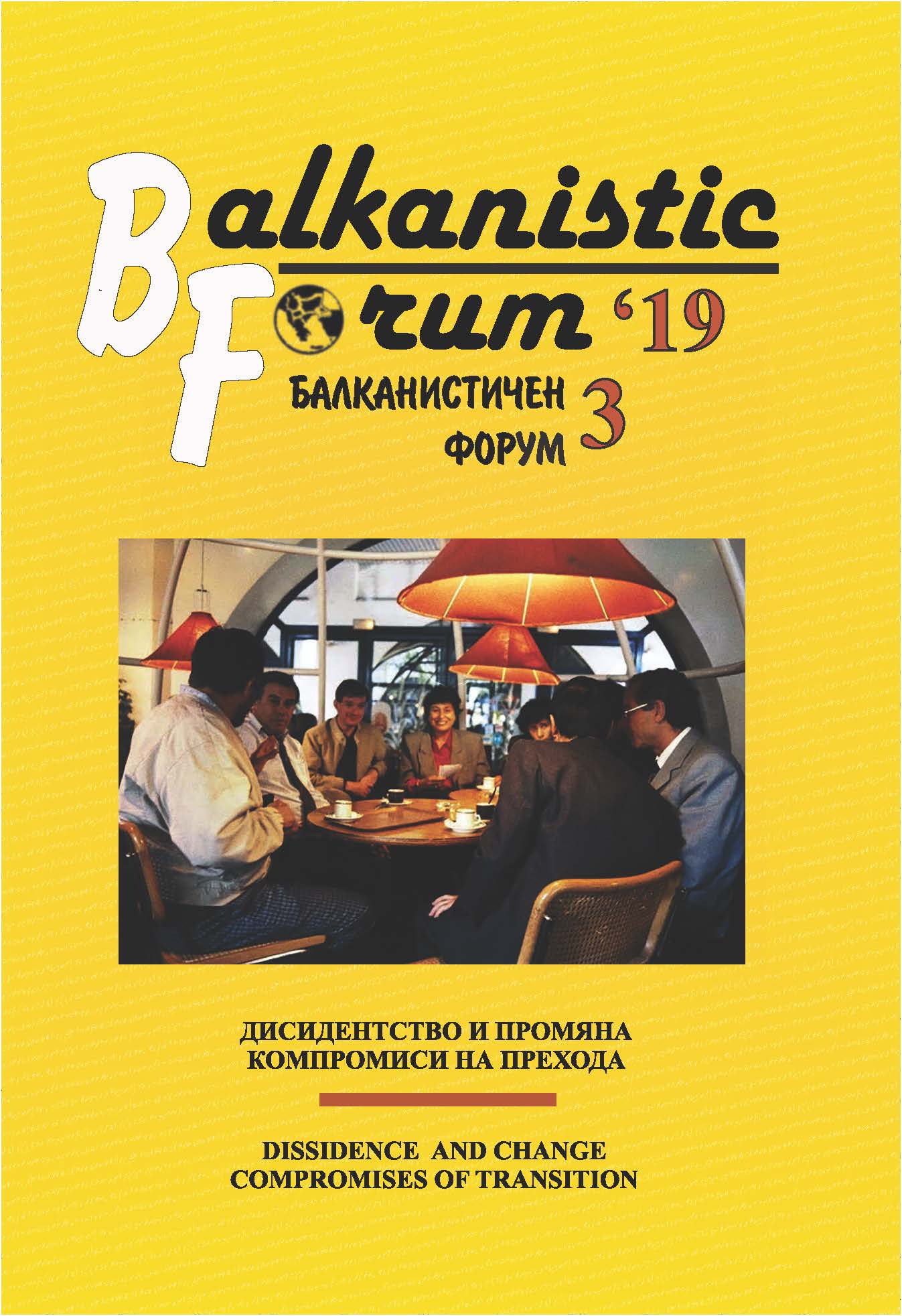
Първият „Българско-азербайджански речник“
Presentation of the first Bulgarian-Azerbaijani dictionary. Solmaz Suleymanova “Bulgarian-Azerbaijani Dictionary”, Baku, 2017, Aurora Publishing House, 682 pages.
More...We kindly inform you that, as long as the subject affiliation of our 300.000+ articles is in progress, you might get unsufficient or no results on your third level or second level search. In this case, please broaden your search criteria.

Presentation of the first Bulgarian-Azerbaijani dictionary. Solmaz Suleymanova “Bulgarian-Azerbaijani Dictionary”, Baku, 2017, Aurora Publishing House, 682 pages.
More...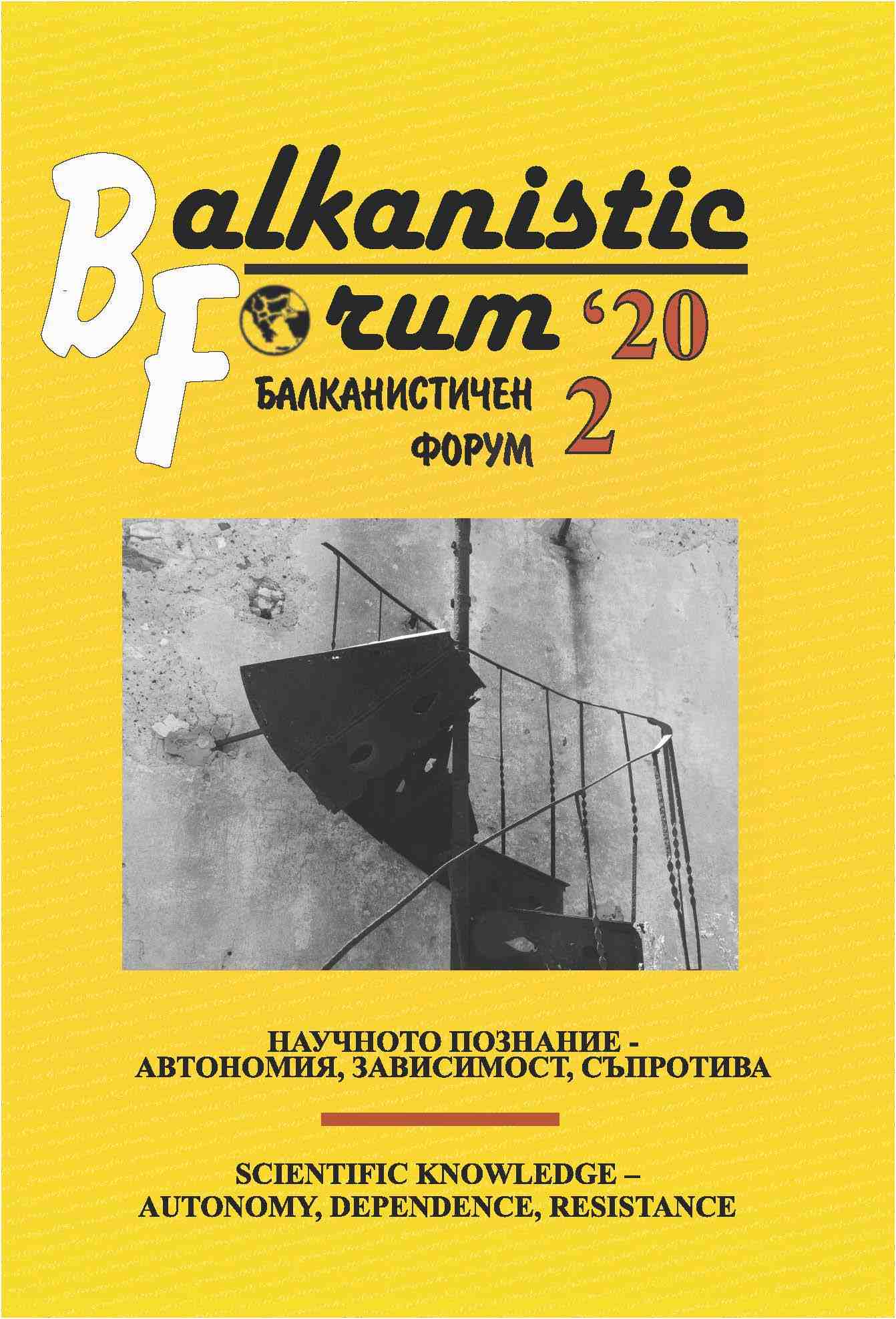
The forty-second volume of Studien zur Slavistik (Hamburg 2018) - Linguistics as a Cross-ing Point in the discourse between Law, Politics, and Conflict (Linguistik als diskursive Schnittstelle zwischen Recht, Politik und Konflikt; Hrsg. Martin Henzelmann) – focuses on the mediating role of Linguistics between Law, Politics and historical concepts. The analy-sis is based on cases from Bulgaria, Czech Republic, Macedonia, Poland, Russia, Slovenia and Ukraine.
More...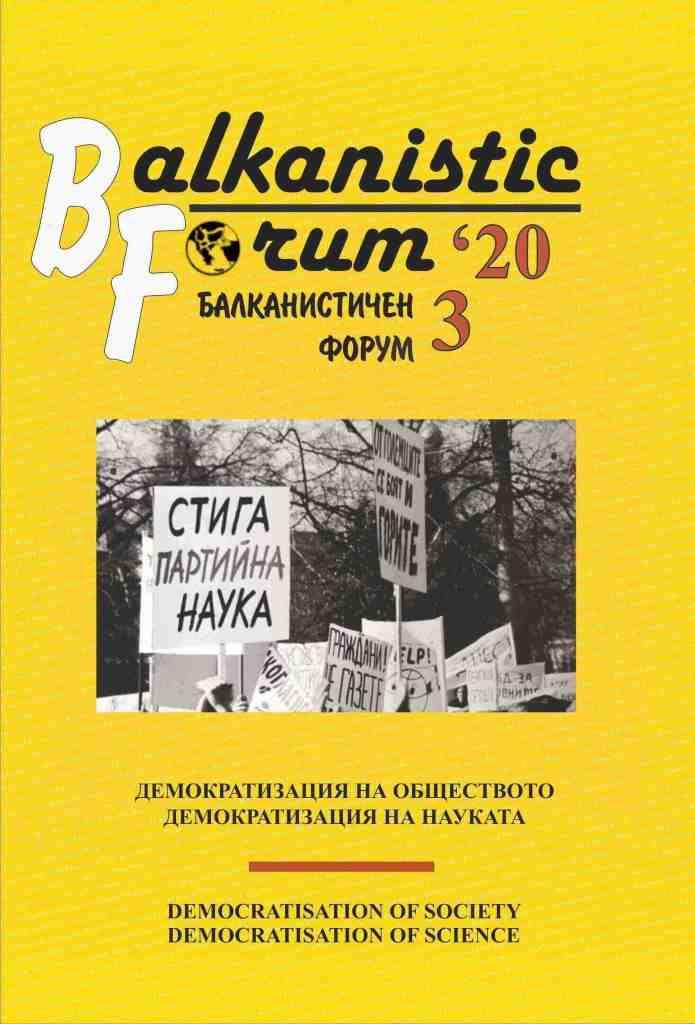
Using the method of the critical discourse analysis and the insights of George Orwell „1984“ the author aims at analysing the propaganda mechanisms (production distribution and perception) of the totalitarian press in the 1950-s. The socio-political context of the press and the new relations between orality and literacy because of the domination of the new elite (mainly of village origin and with low education) have been outlined. The text analysis discovers the duality of the themes, the centralized and passive sources of the texts, new genres and the new imagery explained by some psychoanalytical concepts. The structure of the newspeak changed considerably with logoside and intensive production of neologisms, especially abbreviations, abundance of euphemisms and doublethinks which aim at closing the thought in vicious circles.
More...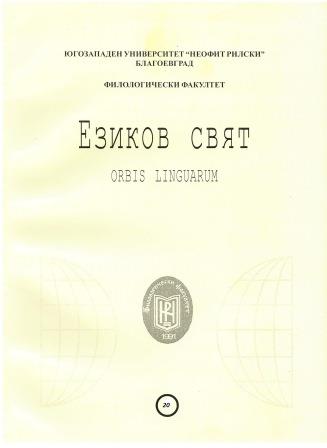
The object of scientific analysis in this paper are the structural-semantic, functional and stylistic characteristics of a type of quasi-negative constructions with generalizing meaning in the modern Bulgarian language, which are formed by interrogative pronouns (or adverbs) by adding the particles li or ne (or just ne) – cf. koy (li) ne, kakav (li) ne, kade (li) ne, etc. Based on the observations on a rich corpus of excerpted examples, an answer to the question of the status of the combinations in question, the degree of their idiomatization, the semantic difference between them and the corresponding generalizing pronouns, the role of context in their use in speech is sought. Attention is drawn to the fact that, unlike the generalizing pronouns, these combinations are not used in sentences with a verb negation, nor in real interrogative sentences. It is concluded that in the current stage of development of the Bulgarian language there is a process of lexicalization of composites of the type koy (li) ne, but it has not reached its final phase. Evidence of this is the uncertainty of the constituent model of the combinations (there are the following structural variants – koy li ne (koy li nyama – in rhetorical questions), koy li ne, koy li ne shtesh), their dependence on the context, the situation and partly on intonation (when used in rhetorical questions), as well as their functional limitations.
More...
The article attempts to analyze the state of studying the formation of the phraseological fund of the Ukrainian language in domestic linguistics. The analysis showed that the traditional approach in Ukrainian studies is to fix the phraseology, clarify its semantics and unite them in groups according to the semantic criterion. In a few studies, the stylistic functions of phraseological units are presented and their comparative analysis in related languages is performed. It was found that the research was performed on the basis of materials of business style written documents of the XIV–XVII centuries, while written documents of other styles serve as a source base much less often or were left out of consideration. The same applies to the time period where the Kyiv Rus’ period is presented in only one study. The analysis of works on historical phraseology showed that in Ukrainian linguistics this trend has not been studied yet. The number of written memorabilia available for research is increasing, while several linguists are currently working on their phraseological system. The traditional method of interpreting phraseology is undergoing transformation: instead of studying phraseology within one style, one can observe its processing through discourse analysis and cross-stylistic parallels, which allows to record metaphorical shifts and determine in which style or genre the phraseologized meaning developed.
More...
This study aimed to examine students’ attitudes toward Indonesian language from public and private universities in Indonesia. Additionally, this study examined what aspects are considered unfavorable or adverse from students' attitudes towards the Indonesian language. The online questionnaires with 30 statements were used to collect the data from 812 students from public universities and 705 students from private universities. The instrument's validity was carried out by two methods of testing, namely the content validity test and the testing. The data were analyzed by using descriptive statistics with Independent T-test sample test. The findings revealed that students' attitudes towards Indonesian both from state universities and private universities were both in a good category, and there was no difference in the results of the different test attitudes with a significance value of 0.970. In terms of the aspects of loyalty and pride towards Indonesian, it was in a sufficient category. The findings also indicated that students’ attitudes in public and private universities were categorized as sufficient. For this reason, lecturers who teach the Indonesian personality development course further foster students’ awareness to be loyal and proud of the Indonesian language by prioritizing Indonesian in every academic activity. It is necessary to develop a sense of loyalty, pride, and awareness of norms towards the Indonesian language even higher.
More...
The deals with the novel “Zhari in Africa” by Emil Koralov, published in 1942. The author of the paper focuses on the fantastic in the novel – the mechanisms that realize it, the relations between fantasy and realism. She pays attention to the adventure, the education, the cult of the science and the Utopia in view of the fact that this novel was created for children. Fantasy is a relatively young genre in contemporary Bulgarian literature. It was created under the influence of the translated literature and its beginning can be traced in diabolism. Between World War I and World War II far more fantastic books for children were published than for the adults. Such books were written by Emil Koralov, Elin Pelin, Nikolay Fol, etc. The accent is on adventure, travels in unknown lands and seas, and new technologies. The authors use some motifs from folklore and mythology. Emil Koralov was one of the first authors who wrote science fiction in the field of children’s literature and he was actually the most prolific writer between the World War I and the World War II. He wrote more than twenty novels for two decades. These novels were published in sequential instalments on the pages of the literary newspaper for children and teenagers “The Jolly Company”. Then these novels were exceptionally popular.
More...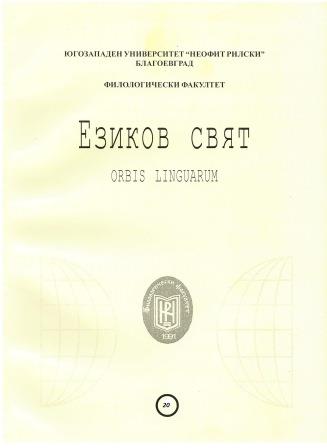
The main objective of the study was to determine whether the musical hearing may be considered among factors affecting the degree of a foreign accent in a second language (L2) and how important it is mastering the perceptual and productive aspects of the suprasegmental level of foreign languages by students of linguistics specializations. The results of the study showed that subjects with developed musical hearing performed tasks on both aspects - perceptual and productive - more successfully. However, there are reasons to assume that the significance degree of the influence of a developed musical hearing on both the perceptual and productive aspects may differ depending on a range of other factors. Therefore, further research aimed at establishing the role of musical hearing in the hierarchy of the factors affecting the development of the phonetic and phonological competence is of great importance. The obtained results might contribute to finding new original forms and methods of teaching phonetics of foreign languages based on musical art, as well as to improving the efficiency of mastering the phonetic-phonological competence by students of linguistics majors, and to creating auxiliary programs aimed at the developing of musical, and, consequently, phonetic hearing.
More...
Although in some periods of communist Bulgaria there was a weakening of the pressure and control over the education, language, culture and literature of the Turks in the country, the assimilation policy was always on the agenda of the totalitarian authorities. Various means of control over the education and the press were used, and after the April Plenum the authorities gradually proceeded to deform the Turkish literary language by forcing the introduction of Bulgarian vocabulary and the violation of its grammatical construction, punctuation, transcription. A special list of words which had to be used in print and literature was created. This rude intervention was supported by the publication of materials in Bulgarian, which were progressively increasing. The publication of Turkish literature was stopped, and writers either had to start writing in Bulgarian or remain silent forever. The linguistic policy of the totalitarian state against the Turkish minority in the second half of the 1980s reached its highest degree, resulting in a total ban on the Turkish language not only in its written form, but even its use in a home environment. This study aims at presenting a previously unexplored problem of the direct encroachment on Turkish literary language and the destruction of already published literature.
More...
Communicative features of religious marketing are new objects of study for the Ukrainian scholars. The actuality of the study is stipulated by the fact that the studied subjects belong to such general communicative and linguistic problems as linguistic programming of personality, language and religious identity, semiotic code, God substitution, communicative manipulation, suggestion, etc. The cognitive significance of religious marketing for Ukrainians is determined by the factors of its influence on the consumers. Consumer behavior depends on the communicative specifics of religious marketing texts. The authors distinguish the pathogenic influence and influential texts with pragmatic function. The objects of our research are the communicative features of the Christian marketing, Islamic marketing and Judaic marketing in Ukraine. The subjects of our article are the marketing of communications, positioning of religious services and goods. The tasks are the following: to analyze the communicative aspects of religious marketing of Christians, Muslims and Jews in Ukraine. The methodology of the research is based on the current approaches to scientific studying of religious communication and channels of its promotion. We use discourse analysis (critical) for the science qualification of interactional aspects, socio-psychological and socio-cognitive characteristics, frameworks and contexts. Religious marketing communication great progress has been made in new media. Within the frames of marketing linguistics, new media linguistics peculiarities are also analyzed.
More...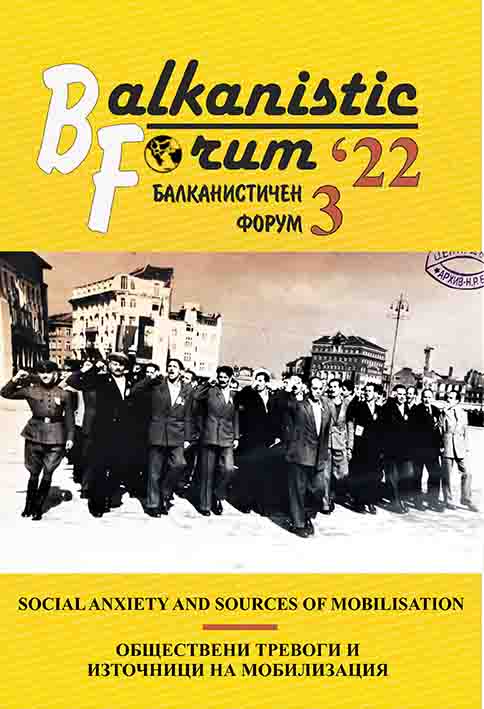
This article is a review of the study entitled Взривена литература. Военни прози, партизански разкази, партийни мемоари [Explosive Literature: Military Predictions, Partisan Narratives, Party Memoirs], authored by Maya Angelova.
More...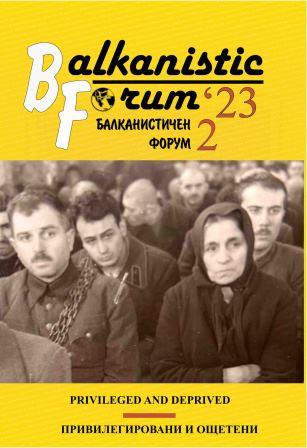
The paper examines the problems faced by evangelical ministers condemned in the so-called Pastoral Trials (1948–1985) and their families. At the same time, the Bulgarian State Security managed to launch its own cadres to take the places of uncomfortable ones on the pulpits and push state policy following the KGB models. And they suc-ceeded in converting even some of the pastors who have been caught up in the judicial processes and declared unjustly. Attention is paid to the instigated opposition against highly educated and erudite clergymen enjoying authority in society, by officials obe-dient to the new authority, ready to sell their faith for some silver coin.
More...
Whatever is the nature of the war there are two parties engaged in conflict. Terror is much more terrible, because in this case there are no opposing sides: the “powers that be” methodically destroy “undesirable elements”. In Georgia, the intelligentsia was gradually eliminated: writers, poets, scientists, public figures were sent to camps, shot, evicted by families, forced to write false denunciations. Thus, analyzing the develop-ment of science and culture in Georgia between the two world wars, we can conclude that the Sovietization of Georgia and the regime of "great terror" were characterized by such a large number of victims among the Georgian intelligentsia and talented youth that the problems of science were relegated to the urgent need survive.
More...
The change in social and political conditions in Czechoslovakia and then in inde-pendent Czechia after 1989 caused significant dynamics in the creation of new words and expressions or the expansion of the meaning of already existing words. A symbolic representative of the emergence of new words and meanings is the verb tunelovat and its derivatives (tunelování, tunelář, etc.), which began to be used to describe a certain way of realizing economic crime, through which privileged individuals from the time of the communist totalitarian regime become a privileged layer of society and in the new conditions of freedom thanks to their connections, financial security from the past and their entrepreneurial cynicism. The article presents a linguistic analysis of this expression and its derivatives from the point of view of lexical semantics, word for-mation and frequency of use. The analysis is based on both the relevant scientific lit-erature and data from the Czech National Corpus.
More...
The fascinating world of Facebook commentary sections under the news portals are considered. There are headlines about politicians who can exercise power and about people that are rich and successful and could inspire awe. When we talk about the language of the politics we mostly consider and monitor the language of politician or language of the media/yellow press. However, there is a pool of reactions in the com-ment section where people sometimes anonymously, sometimes openly express their opinions on what we can call elites. Research method is based on discourse analysis of chosen Croatian media on Facebook in selected timeframe. The comment section is an interesting paradox of spoken language in written form. We can divide the users into few groups a) the supporters and fans; b) in opposition; c) those who are (trying to be) funny no matter the situation; d) drawing attention to the deprived to level the field e) asking “who cares” or “who are they anyway”. The main contribution of this text is a monitoring of the language/social place that is not explored that much especially when it comes to small language environment. The comment sections reflect not only language in use but also moods, wits, and problems of its users and it could be taken into consideration about how this part of society feels and talks about privileged.
More...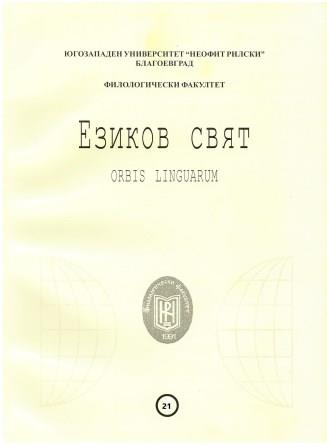
Exclamatives constructions in the Philippine English form a variegated class which is often confused with other types of clauses. These structures are characterized by intonation contour, emphatic stress and propositional properties beyond their syntactic form. Using the AntCoc protocol, this corpus-based study presents a survey of the categories and syntactical characteristics as well as the functions of the exclamatives found in ICE-PHI with 199 hits out of 1,172 tokens from the word collection. Key words such as what, how so, such a/an and others were used to locate the target hits of the utterances. Analysis was made on the syntactic and formulaic forms, semantic categories and pragmatic impressions. Results show that 'so' exclamatives posted the highest frequency, followed by the prototypes, and 'the such a/an' exclamatives. Minimal occurrences were recorded for DP – 'the way' exclamatives and nominal exclamatives. A majority of the exclamatives followed the initial exclamative phrase syntactic formula except for the 'such a/an' exclamatives which follow the subject auxiliary inversion. The syntactic features and functions of the exclamatives illustrated the semantic nature of the structures which differentiated them from seeming to be similar structures as in expressive/emotional utterance.
More...
The article implements an integrated approach to examining the mobilization potential of Twitter, which incorporates an analysis of intentions stated by the authors of hashtags and messages. The study cited in the article proceeds from J. Austin and J. Searle’s approach who argued that any utterance is essentially preparedness to perform an action, and examines the Internet space and social networks from the standpoint of the Speech Act Theory. The article explores the illocutionary goals set by the authors of topical tweets containing an explicit evaluation of Donald Trump’s restrictive immigration policy, and establishes the combinatory power of mobilizing hashtags (which call or appeal for action) and of directive speech acts. Established in the article are the most common patterns for the formation of mobilizing hashtags, alongwith the regularities of how directive speech acts and mobilizing hashtags are interrelated. To classify hashtags, lexical , semantic and folksonomic analyses are employed. The interrelation of hashtags mobilizing for action is represented graphically in Gephi software. The article suggests that to realize an appeal for action, the users rely mostly on the mobilizing potential of hashtags or tend to employ a combination of a directive speech act and a mobilizing hashtag, whose meaningful explicit appeal coincides in its communicative potential with the imperative verb realizing the directive speech act. It is concluded that in modern online communication hashtags appear to be a powerful autonomous instrument as far as mobilization is concerned.
More...
The paper focuses on the linguistic and narrative manifestations of linear time in rap lyrics compared to fairy tales. It aims at scrutinizing narrative time by the criteria of its acceleration, retardation and generalization, based on syntactical, narrative and pragmatic devices, interpreted from the viewpoint of their iconic isomorphism to the expressed temporal relations. Linear time in fairy tales is self-sufficient, forward-oriented and isolated from external time, while rap narratives are consistent with historical time and free in its movement from the past to the present, and vice versa. Time acceleration in rap occurs in the past or dramatic present and involves syntactical devices aimed either at reducing syntactic patterns by means of detached constructions, asyndeton, nominative sentences and ellipsis, which iconically reproduce the events’ change rate, or at increasing emotional power through climax, reproducing time “condensation.” Instead, fairy tale time is accelerated by lexical-semantic means. The slowed time in rap lyrics relies either on the redundancy of the syntactical pattern, provided by anaphora, repetitions, polysyndeton and enumerations, iconically reproducing the time extension, or on meaning implicatures and their corresponding violation of pragmatic maxims, foregrounded by enjambment , catachresis, aposiopesis and parenthetical phrases, semantically incoherent with the clause they must qualify. Instead, the time extension in a tale never relies on the inference of the deliberately implicated meanings and is expressed by formula and plot elements repetitions. In contrast to subsequent and monotemporal tale narratives, rap lyrics time is often marked by the violation of the temporal sequence, indicating psychological time, inherent in poetry in general.
More...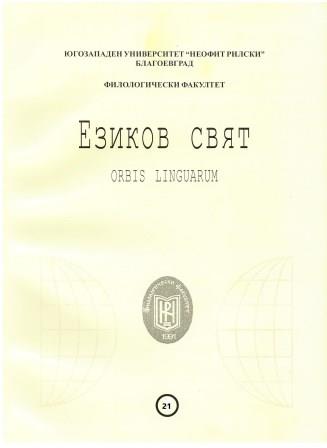
We consider the impact of media discourse on linguistic culture, focusing on the Austrian press and its role in development of the Austrian national version of German; we analyze the current research of the Austrian German standard, conducted on the material of modern journalism; we identify the main lexical processes that occur in modern Austrian German and are reflected in the media discourse; we substantiate the presence of convergent and divergent features in the functioning of Austrian German. The aim of the article is to reveal the features of Austrian media discourse and to identify the main processes taking place in the language of the Austrian press at the lexical level, in particular the use of Austriacisms and Teutonisms, as well as regionally marked lexical-morphological and phraseological units. We see its relevance in identifying trends in the development of pluricentric language and in elucidating the impact of media discourse on it. Thus, influence of mass media (especially of the press) on development of the Austrian national version of German is undeniable. It manifests itself in the fact that mass media, which are published in Germany, are a source of penetration of the new linguistic phenomena into the Austrian German. As a rule, this relationship is not symmetrical: German is the donor language for the Austrian German, which in this situation is the recipient language. In general, the linguistic colour of the national media is of great importance for the functioning and further development of the divergent version of German in Austria.
More...
The Qazaq newspaper played a critical role in reviving the Kazakh national identity. It was the first socio-political media outlet produced in the Kazakh language, one of the deepest and strongest roots of contemporary Kazakh journalism. The Kazakh National Intelligentsia understood that, without education and language, protecting Kazakhs’ interests was doomed to failure. Kazakh people’s illiteracy was the main vulnerability of the. Therefore, new education was needed to relieve Kazakh people from illiteracy and direct them toward the perspective of Kazakh independence. This study aimed to explore the importance of education in The Qazaq during 1913-1918. To achieve this goal, the research focused on the quantity of coverage of issues such as education, language, religion, and tradition. The Qazaq’s primary function was to educate people via media by reporting on crucial problems in Kazakh education at the time. The newspaper covered issues such as education, religion, illiteracy among Kazakh people, scholarships for poor Kazakh children, schools and teaching problems; training of teachers; tuition for schools, exchanging programs abroad, modernization of school programs, publishing of textbooks for schools; funding of building new schools, religion, schools for Kazakh girls and training of female teachers, organized a boarding school for students, teaching methodologies and teaching in the Kazakh language, and syllabus for primary and high schools.
More...